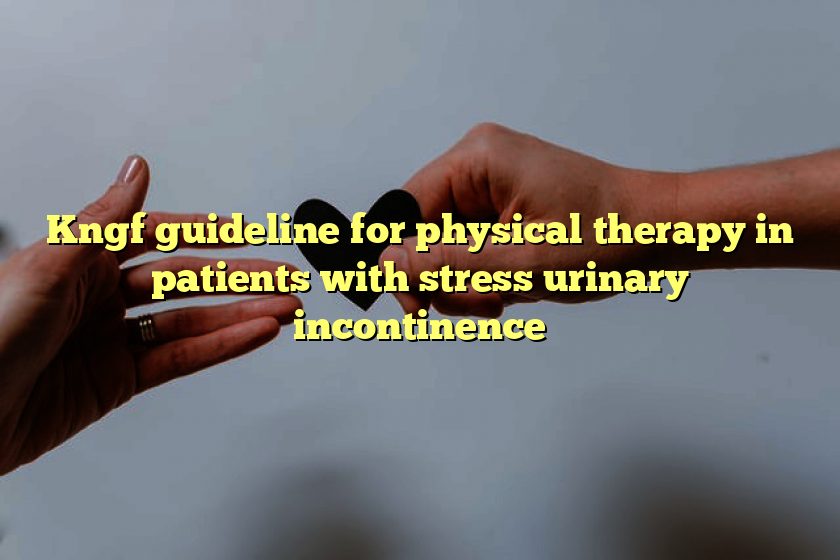Stay ahead of the trend in fashion and beyond with our free weekly Lifestyle Edit newsletter
Stay ahead of the trend in fashion and beyond with our free weekly Lifestyle Edit newsletter
Please enter a valid email address
Please enter a valid email address
I would like to be emailed about offers, events and updates from The Independent. Read our privacy notice
Thanks for signing up to the
Lifestyle Edit email
{{ #verifyErrors }}{{ message }}{{ /verifyErrors }}{{ ^verifyErrors }}Something went wrong. Please try again later{{ /verifyErrors }}
[This article was originally published in September 2020]
Feeling attracted to someone other than your romantic partner is one of the most troublesome dilemmas people can have in a monogamous relationship. But it’s also one of the most common.
In fact, one survey from 2016 found that as many as 50 per cent of people in relationships have had feelings for someone other than their partner, while one in five adults confessed to being in love with someone else.
But how to address this dilemma depends on a multitude of factors, such as the state of your current relationship and, crucially, whether or not your attraction can be dismissed as a harmless crush, or as something deeper.
We spoke to relationship experts about what to do if you find yourself feeling attracted to someone other than your partner.
Decide how you feel about your current relationship
Consider the reason why you’re attracted to someone else: are they providing something your partner is not? If this is the case, relationship psychologist Madeleine Mason-Roantree suggests spending some time reflecting on what is missing in your current relationship.
“Think about what is missing and address this with your partner first,” she says. “There’s no need to bring your outside attraction into the conversation at this stage.”
It might be that your partner responds well to this conversation and starts to provide you with whatever it is you think this other person might be able to. If so, problem solved.
Don’t panic
When you’re in a loving relationship and you suddenly find yourself thinking about someone else, it can spark confusion, fear and namely, concern.
But such reactions are not always necessary, says dating coach James Preece. “Before you do anything drastic, take a step back. It’s perfectly normal to still fancy other people, even when you are in a happy relationship,” he explains.
“You can be in a relationship with someone and still appreciate a good looking person when you see them. A little fantasy here or there is healthy as long as that’s all it is.”
Identify your boundaries
As Preece explained above, it’s normal to feel attracted to people when you’re in a relationship. It can be harmless, too, so long as you can identify your boundaries, explains clinical psychologist Marc Hekster.
“Part of being in a relationship inevitably involves managing attraction to other people and creating a boundary that prevents it from impinging on you and your relationship,” he explains.
“If that boundary creates anxiety or conflict or you feel that you are in danger of acting on the attraction, then it is important to understand why.”
Engage with caution
If you do decide to act on your crush or attraction, be wary, says Preece.
“You might think having a little flirt or sending some cheeky texts is a perfectly harmless little game. The problem is that this can escalate quickly,” he explains.
“One minute you are sending wink emojis and the next it’s half naked selfies. You may have no intention of ever doing anything serious, but imagine how you’d feel if you found these conversations on your partner’s phone.
“Stop now before it goes too far and don’t get yourself into situations that could lead to trouble.”
Consider whether this is a pattern
If this is not the first time you’ve found yourself thinking about someone else other than your romantic partner, it might be time to think about why you keep doing this, says Mason-Roantree.
“Perhaps you have difficulties with intimacy, and your subconscious way of dealing with that is to ‘allow’ yourself to be preoccupied by someone else. In which case, therapy might be useful here,” she suggests.
Be honest
Being attracted to another person is one thing, but acting on that attraction is quite another altogether. Speak to your partner before doing anything, says Preece.
“If you are considering doing something behind your partner’s back then it might be better to set them free first,” he advises.
“If you decide you’d rather be with someone else then break things off with your current partner first.”

Westend61 via Getty Images
There’s nothing wrong with feeling an attraction to another person when you’re in a relationship. But you can control whether you nurture the crush or acknowledge it and move on.
When you’re in a long-term relationship, it’s normal to have a little crush on someone other than your partner. Maybe it’s a cute new co-worker, someone at the gym or the barista who makes your daily lattes.
Don’t worry: that doesn’t make you a bad partner, nor does it mean your relationship is on the rocks.
Advertisement
According to psychologist Samantha Rodman, it’s commonplace for people in relationships to develop crushes, especially after a couple has been together for some time.
“It’s very normal and may have nothing to do with happiness in the relationship overall,” Rodman, who is based in North Bethesda, Maryland, told HuffPost. “Crushes make people feel attractive and alive, and people often get them even when they are very committed to their partners, but the relationship is no longer in that swooning honeymoon phase.”
Being coupled up doesn’t mean you suddenly stop meeting or noticing attractive, appealing people out in the world, Ryan Howes, a psychologist in Pasadena, California, said.
“You won’t stop noticing or feeling attraction toward others, as those feelings are automatic and frankly beyond our control,” Howes, co-creator of the Mental Health Boot Camp, told HuffPost.
Advertisement
“Crushes make people feel attractive and alive, and people often get them even when they are very committed to their partners, but the relationship is no longer in that swooning honeymoon phase.”
– Samantha Rodman, psychologist and dating coach
What is within your control is how you handle the crush. Do you obsess over it, or do you just acknowledge it and then carry on with your life?
“It’s a choice to flirt, to daydream and fantasize about this person or to choose to have more contact with them,” Howes said. “In other words, an initial attraction may be unavoidable, but nurturing that attraction through thought and action is on you.”
Below, relationship experts explain why crushes can develop while you’re in a relationship, when these crushes cross the line, and what to do if you think your crush has turned into something more serious.
(Note that in this piece, we are focusing on couples in monogamous, exclusive relationships. In open or polyamorous arrangements, the rules may differ; acting on crushes may be permissible or even encouraged.)
Advertisement
What does it mean if you develop a crush?
Generally, a crush ― if it is truly just that ― is harmless and isn’t necessarily indicative of an underlying issue in the relationship.
“Having a crush doesn’t mean a person wants out of the relationship they’re in,” said Kathy Hardie-Williams, a marriage and family therapist in Portland, Oregon.
But when you choose to feed into that crush, there’s probably a reason you’re doing so. It could be because of something you’re struggling with on a personal level (e.g., you have a history of self-sabotaging when things get serious) or maybe you’re trying to scratch an itch that your current relationship isn’t satisfying.
“People often talk about the crush meeting needs that aren’t being met in the committed relationship,” Howes told HuffPost. “The relationship has become routine or boring, for example, but their interactions with their crush are fun and exciting. Or their partner doesn’t share an interest in movies, but the crush loves movies and wants to talk about them all the time.”
“People often talk about the crush meeting needs that aren’t being met in the committed relationship.”
– Ryan Howes, psychologist
Advertisement
Maybe you’re feeling suffocated by your current partner and you’re looking for an escape. Or, perhaps, you’ve hit a rough patch in the relationship where you and your partner aren’t connecting or communicating openly. In other cases, the crush may be an attempt to make your partner jealous or to get them to pay more attention to you if you’ve been feeling neglected.
“The deficits in the relationship, whether temporary or permanent, could make the crush seem that much more appealing,” Howes told HuffPost.
Rodman recommends that you spend a little time reflecting on why you’re crushing on this person in particular. It may have more to do with you and your family or relationship history than it does with the person.
“For example, a woman with a crush on an older man who is an authority figure may yearn for approval from a parent, or a socially anxious man who has a crush on an outgoing co-worker may fantasize that with the help of a more extroverted woman, he would be able to be more confident,” she told HuffPost.
Advertisement
So when does a crush cross the line?
A crush that starts innocently enough might begin to cross the line into emotional affair territory if left unchecked. One telltale sign: When you get news, good or bad, is your first instinct to tell your crush or your partner?
“A mentor once told me, ‘You know you’re a good fit when your partner is the first person you want to tell good news, and the first you want to tell bad news,’” Howes said. “Is that confidant your partner or your crush? If your crush begins to compromise the physical or emotional intimacy you have with your primary relationship, or you’re stoking fantasies about that happening, you’re in dangerous territory.”
Hardie-Williams told HuffPost that it’s important to be honest with yourself. In your heart, is it really “just a crush” or is there something more there?
“If your crush begins to compromise the physical or emotional intimacy you have with your primary relationship, or you’re stoking fantasies about that happening, you’re in dangerous territory.”
– Ryan Howes, psychologist
“There is a fairly obvious line between an emotional affair and a crush,” she said. “Also, it’s not possible to have a crush on someone where there has been previous involvement. That’s called history. A crush is not an excuse or an invitation to cross the line behind the significant other’s back.”
Advertisement
So what should you do if you suspect your feelings are more serious? For starters, do not reveal this to your crush, Hardie-Williams said.
“It can make things awkward in that the other person feels pressure to feel the same way or to respond,” she told HuffPost. “Also, don’t crush under the influence of alcohol. Have a strategy planned for exiting a social situation if things are heading in a direction where the line could be crossed.”
If you’re having trouble sorting out your feelings about this other person on your own, consider enlisting the help of a therapist.
“Your emotions may be muddying the waters and a third party could help you sort things out,” Howes said. “If you’re in a committed, exclusive relationship you’ve made a pact to have one relationship at a time, and harboring a crush on another is jeopardizing this.”
Advertisement
Should you ever tell your partner about a crush?
Our experts insist there is no black-and-white answer here. It really depends on you, your partner and the kind of relationship you have.
“Some partners may find it exciting to think about you flirting with someone else, particularly if they are very secure and confident,” Rodman said. “Other partners will be deeply hurt. You probably know whether your partner finds it threatening or not to hear about your inner world and past relationships.”
Another thing to consider is the reason you feel compelled ― or do not feel compelled ― to disclose the crush.
“Is telling your partner better for you, because it reduces your guilt and discomfort, or better for them, because they can confirm their suspicions and they get to know who they’re really with?” Howes said. “If it’s only good for you, and would cause them undue pain, it may be best to keep it to yourself. If you really believe it will benefit your partner, even though it is uncomfortable for you, you may want to tell.”
And one final thing to keep in mind: When crushes go too far, they are taking away important attention and energy from the real underlying problem, whether it’s a personal issue you’re grappling with or something that’s wrong in the relationship.
Advertisement
“The energy needs to go toward the internal conflict or resolving the problem within the relationship, not toward an external distraction, even if it is fun,” Howes said. “Maybe this resolution means working on yourself, your relationship, or breaking up with your partner so you can explore other options ― either way, each are a higher priority than flirting with a crush.”



